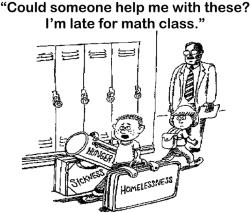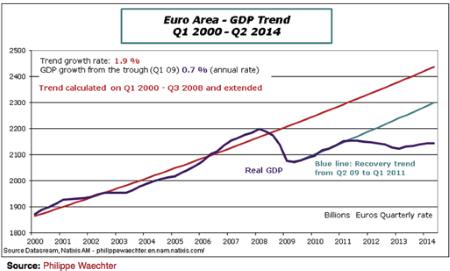 I suppose I should say something about the earthquake we had here over the weekend. It is now more or less officially known as the 2014 South Napa earthquake. That’s about 30 miles away from me. And it happened early Sunday morning.
I suppose I should say something about the earthquake we had here over the weekend. It is now more or less officially known as the 2014 South Napa earthquake. That’s about 30 miles away from me. And it happened early Sunday morning.
At first, I didn’t think much of it. I woke up and thought, “Oh, we’re having an earthquake.” Then I went back to sleep. You see: I’m a California boy and we may be wimps about many (in my case “most”) things, but earthquakes are officially No Big Deal. But the moment I fell back asleep, I was awakened again. That got my attention. So I sat up and threw my legs over the side of the bed. But the motion was such that I fell over. And then it stopped.
There was a moment of calm and then the electricity went out. It stayed out for about two hours. Other than having some trouble sleeping because of my computer crash, there really wasn’t much of an effect on my life. I thought it sucked that I could not immediately go to the United States Geological Survey website and see how big a quake it was, but that was it. Such was the minutia of this quake on my life.
In the morning, I was surprised that the earthquake was only 6.0 magnitude. It felt bigger than than 1989 Loma Prieta earthquake, which was of magitude 6.9. But I was a whole lot closer to the epicenter of this so that’s probably why it felt stronger—because it was, for me. But I figured the 6.0 magnitude wouldn’t cause much damage. I was surprised and sad that it did.
A couple hundred people were injured in the quake—a couple of them quite seriously. There was one death, but it seems to have been coincidental. And the damage has been estimated to be about a billion dollars worth—a lot for sleepy little Napa.
It speaks well of California building codes that the damage was as limited as it was. I can well image the effect of such an earthquake in other parts of the country, or in very poor countries. According to Wikipedia, earthquakes in this range can result in up to 25,000 fatalities, although this quake was at the bottom of the range. But even here, there would have doubtless been a lot more injuries if this had happened 12 hours earlier or later.
We Californians keep waiting for The Big One—something like the 9.2 magnitude 1964 Alaska earthquake. But there may be good news. The drought in California is so bad, that by the time that quake comes, California may be a ghost state.
For a good visual overview of the quake damage, see my local NPR/PBS affiliate KQED, South Napa Earthquake Photos.

 The notion that violence within the black community is “background noise” is not supported by
The notion that violence within the black community is “background noise” is not supported by 
 Yesterday, Ken over at All Things Democrat had an interesting suggestion,
Yesterday, Ken over at All Things Democrat had an interesting suggestion, 
 On this day in 1910, the great surrealist painter
On this day in 1910, the great surrealist painter 